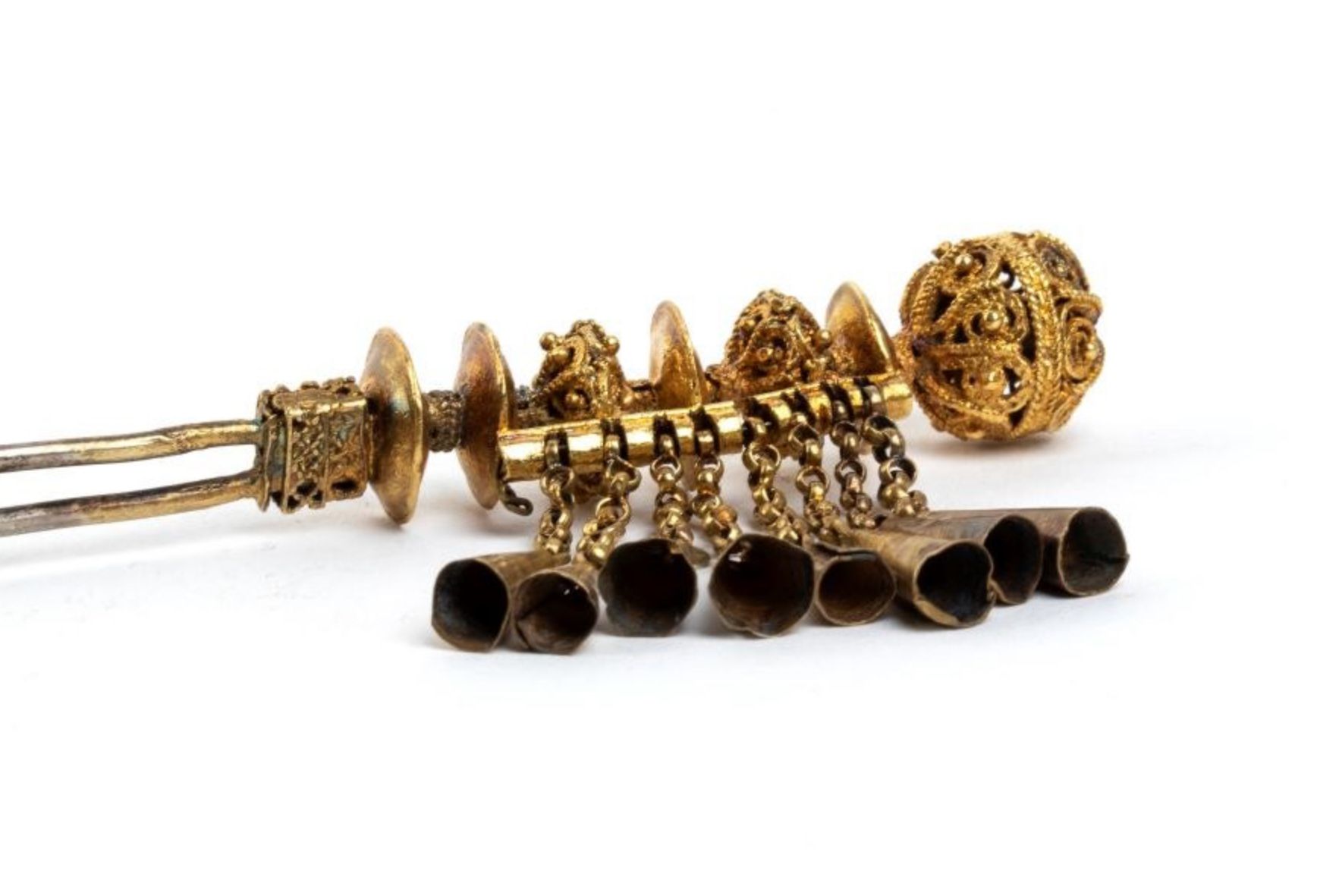Cultural Restitution
SHARE ARTICLE
A draft bill to kick start the return of 27 objects to Africa, now owned by the French nation, may receive approval by France’s two assemblies later this year. But don’t expect it to lead to wider restitutions by the French nation, cautions the Institute of Art and Law.
It’s been twenty months since art historian Bénédicte Savoy and economist Felwine Sarr produced their report, commissioned by French President Macron, recommending the permanent return of any object ‘taken by force or presumed to be acquired through inequitable conditions’ from sub-Saharan Africa. Since then, although the French government has spoken frequently of a new policy of cultural co-operation with Africa, it’s been strikingly silent on implementation.
Which is why news that a review of constitutional issues raised by the bill, conducted by the government’s expert advisory body the Conseil d’état, which clears the way for a bill to return the 27 looted objects to Benin and Senegal, might suggest the scene is set for further restitutions.
But future claimants will be disappointed.
The draft legislation, examined by government this month (15 July), would commit France to transferring ownership of the 27 objects out of French public collections and into the state's 'private' domain, a legal manoeuvre so the items can be considered for permanent return to their places of origin.
For a country where the principle of ‘inalienability’ has always been a major barrier to the deaccessioning of objects in public museum collections, this appears like a significant step forward in delivering on the government’s new policy of cultural co-operation and a viable alternative to long-term loans.
However, on the assumption the bill passes into law (not guaranteed while the French government faces other more pressing domestic issues), IAL’s own expert analysis of the bill's constitutional issues suggests prospects for large-scale African restitutions are still no nearer than before.
The legislation relates only to the transfer of a specified group of objects, ‘within a circumscribed part of a collection’. In this case, 26 objects looted by French troops from the palace of Abomey in 1892, now in the Musée du Quai Branly-Jacques Chirac in Paris, and the sabre of El Hadj Omar Tall, currently on long-term loan to Senegal’s Museum of Black Civilisations.
Claimants for the return of other African objects in French public collections (estimated at more than 90,000) will discover the bill does not grant them identical rights. Future restitution claims would need to follow the same legislative process, requiring each object to be individually identified within a new and subsequent law.
“This means the process will be piecemeal and, inevitably, very slow,” explains Alexander Herman, IAL Assistant Director. “There would necessarily need to be the political will on the French side in each case and bilateral arrangements made at the international level.”
As removing any requirement for special laws lies at the heart of the Sarr-Savoy report, IAL’s analysis suggests the Conseil d’état are advising the French government to sideline one of the report's key recommendations. Instead of basing future procedures for restitution on ‘bilateral agreements of cultural cooperation’, they are advising the government dismiss the idea of joint commissions altogether.
“The idea that a series of international panels could effectively order restitutions without the requirement of a special law passed in each case is now seriously undermined,” explains Herman.
The question whether or not the Sarr-Savoy proposals were ever constitutionally sound under French law has concerned Herman for some time. “I think this latest review demonstrates that anything broader and less precise than the current bill would have serious constitutional problems”.
Whether the current bill passes or not, the French government is evidently not in a hurry to countenance further restitutions and appears content to bypass Sarr-Savoy's procedures.
Photo: Statues from the Royal Palace of Abomey, Musée du Quai Branly-Jacques Chirac, Paris,
Courtesy of flickr.com
After this was written.....
Two years after President Macron's landmark speech, the National Assembly of France accelerated their procedure to approve a draft Benin and Senegal bill in October 2020. The Senate voted unanimously to approve the bill on 4 November 2020, an act that will lead to the formal repatriation of the 27 objects to Benin and Senegal within one year.
Although welcomed, there's still nothing in this legislation that moves France closer to introducing a more general law covering other looted African objects in French national collections. While Culture Minister Roselyne Bachelot commented this "is not an act of repentance, but an act of friendship and trust", she also warned the bill in no way challenges the French principle of inalienability.
Meanwhile, Senators have called for the creation of a 'national council' to reflect on the circulation and return of non-European cultural objects, an initiative likely to meet further resistance from the Government's opposition.
COMMENT
Dr Kwame Opoku (05 August 2020)
See article in modernghana.com on this issue. France will have to pass a more generalized exception to the rule of inalienability if it does not want to spend the next years passing a new law for each African country for the 70,000 looted artefacts that are still in Musee du Quai Branly-Jacques Chirac.
https://www.modernghana.com/news/1019889/france-moves-closer-to-restitution-of-artefacts.html
More News



